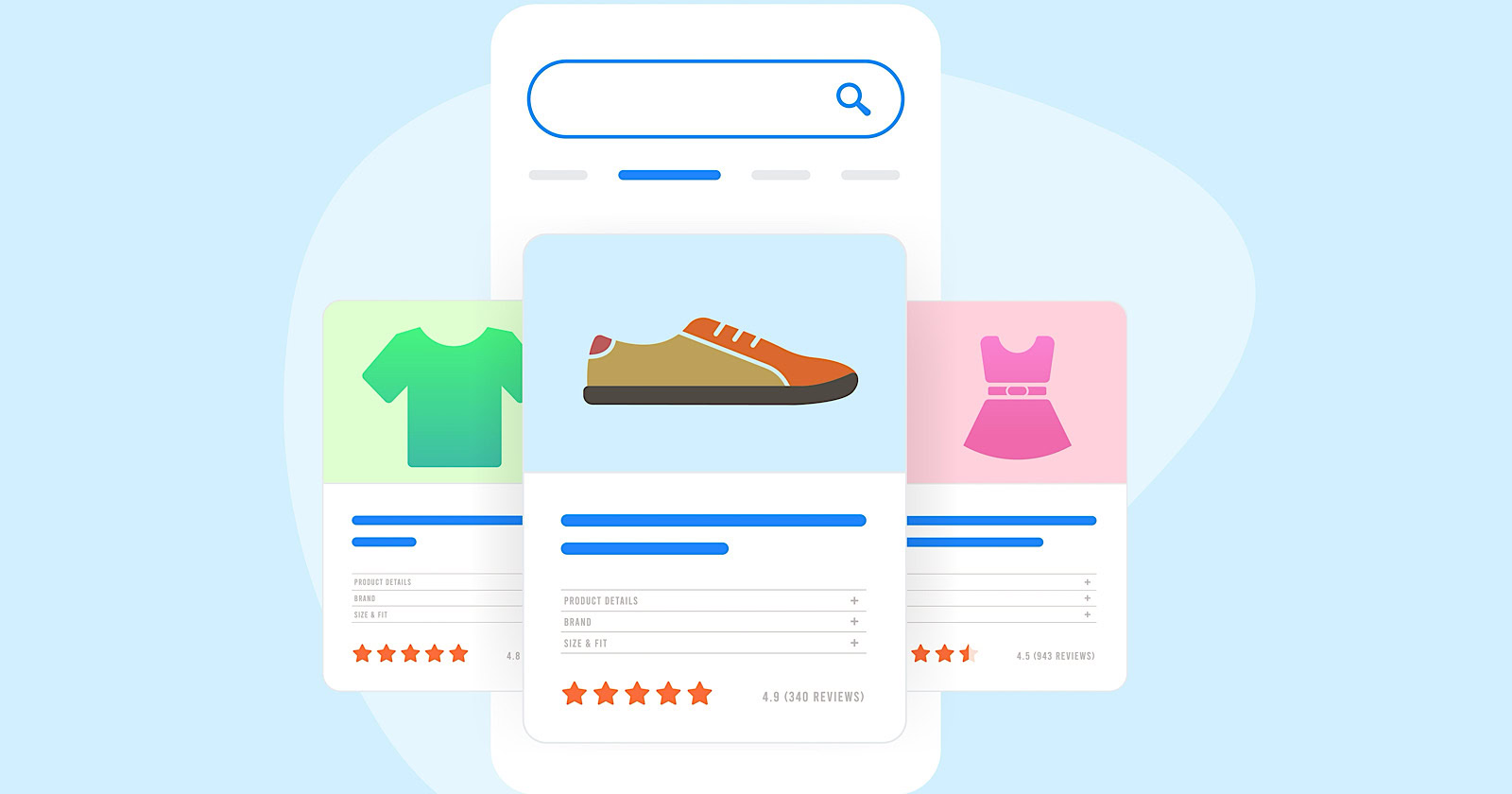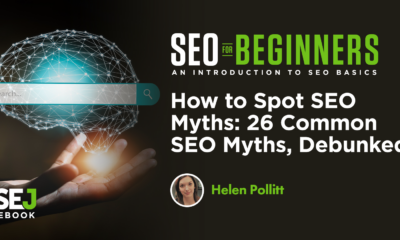SEO
Niche Site Ideas

Finding the perfect niche site idea can seem like an impossible task when you’re starting out. So I decided to do the hard work for you and share 10 niche site ideas you can get going with immediately.
Let’s get started.
Hikers turn to Google for all kinds of inspiration. For example, if we search Ahrefs’ Keywords Explorer for “best bikes in” and check the Matching terms report, we see hundreds of thousands of monthly searches for the best hikes in different locations.

You can easily create hundreds of blog posts to answer these informational questions and monetize with display ads.
But there are also hundreds of thousands of monthly searches for the best hiking gear where you can earn commissions from product reviews and recommendations.
For example:

Let’s filter this list for low-difficulty keywords. It looks like there are plenty of lucrative opportunities where competition isn’t too fierce; for instance, “best hiking gloves”:

There are also plenty of searches for reviews of individual products, such as Sealskinz socks:

From my limited research, there doesn’t seem to be a dominant and trusted review site in this niche. This presents an excellent opportunity for someone passionate about hiking products to build a go-to brand in this niche.
In terms of monetization, you can use Amazon Associates or work with some of the hiking brands themselves.
Many hiking brands have affiliate programs that pay decent commissions.
For example:
Survival is another topic jam-packed full of niche site ideas. It’s gained traction in recent years with the emergence of “preppers” who buy emergency supplies in large quantities.
If we type “survival products” into Google and look at the Google ads, we can get an indication of the average price point of products in the survival niche.

As we can see, survival encompasses everything from dehydrated food kits to power sources, bags, lighting, and survival tools.
As preppers buy products in bulk or as kits, the average conversion value per order is typically higher. This is excellent news for affiliate marketers, as it means higher commissions.
To get a sense of the opportunity in this niche, let’s put the seed keyword “survival” into Keywords Explorer, go to the Matching terms report, and add “gear” to the “Include” filter. This will show us keywords containing “survival” and “gear.”

You can see many angles you can take here if you want to specialize—everything from urban survival, to tactical survival, to military survival gear.
If we now update the “Include” filter to include “best,” we can hone in on some of the most lucrative affiliate keywords in this niche.

There are many keywords here, so it helps to refine this search further. From the above, we can see that people are searching for the “best survival food kits.” As “kits” is a word we have already encountered in the Google ads above, let’s dig into this keyword more in relation to our original seed keyword.
To do this, we’ll add “kit*” to our “Include” filter.

Sidenote.
Adding the * wildcard to the end of our keyword enables us to account for any plural variations of our keyword.
We can see that there are many angles to look at here, with over 700 keywords to target. The keyword list is now much more relevant.
It’s worth noting that “Amazon” appears in the top keywords in the above image, which shows a strong buying intent on that platform for this particular niche.
In terms of monetization, you can use Amazon Associates. But many specialist survival brands have affiliate programs with much higher percentages.
I have provided a few examples below:
Ebikes are a growing trend and typically have a higher retail price than road bikes. This makes them an attractive proposition for affiliate marketers, as commissions are high.
For example, if we look at the price of a Trek bike in the Google ads, we can see one that retails for almost $7,000. This would mean that you could get ~$280 commission at Trek’s 4% commission rate if someone bought this product through a link on your website.

Let’s take a closer look at this topic in Ahrefs to see what opportunities we can discover.
If we plug “ebike” into Keywords Explorer, we see that its search volume trend is on a healthy upward trajectory.

As there is a lot of search volume here, let’s refine our search further to uncover more keyword opportunities.
If a searcher wants to buy an ebike, they will likely search for the best ebikes, how two models stack up against each other, or related questions.
Let’s take a look at these scenarios in more detail.
To find the “best” searches for ebikes, go to the Matching terms report, set the Keyword Difficulty (KD) to 0–20, and set the “Include” filter to include “best.” This will allow us to view low-KD keywords that contain the word “best.”

OK, now let’s take a look at the vs. searches.
To do this in Keywords Explorer, enter a few ebike brands as seeds, go to the Matching terms report, and add “vs” to the “Include” filter.

You can see from the above that you can write many different comparison articles comparing various models.
Scrolling down the list, I can see there is also an excellent opportunity to write a comparison of Trek vs. Specialized ebikes.

You can scale this by replicating this “vs.” approach for other bike brands.
If we want to understand the questions people are searching for, we can use Keywords Explorer to identify these as well.
To do this, remove all filters and click on the toggle to select Questions.

In terms of monetization for the ebikes niche, you can use display ads or go directly to the manufacturers. For accessories, you can use Amazon Associates.
Examples of some of the higher percentage ebike affiliate programs are below:
- St3ike, 10% commission, 90-day cookie
- Trek, 4% commission, 30-day cookie
- Lectric, 3% commission, 30-day cookie
With 70% of U.S. households owning pets, this is a popular topic. And if you own a pet already, then this will be straightforward for you to write about.
Below is the current breakdown of pet ownership in the U.S., according to the 2021–2022 APPA National Pet Owners Survey.

Although it may seem like a good idea to write about cats and dogs, these topics have been covered many times before and will be extremely competitive.
Instead, I’d advise writing about lesser-known pets. For example, let’s take a look at “reptile,” which is further down the list.
If we put “reptile” into Keywords Explorer, go to the Matching terms report, and set the KD to 0–20, we can see some of the lowest competition keywords to target in this niche.

We can see that “reptile basics” has a monthly search volume of 5,000 and 0 KD, which will be an excellent opportunity for a niche site to capitalize on due to its very low KD.
Another keyword that stands out here is “reptile terrarium.” Although it has a higher KD than “reptile basics,” it has a higher Traffic Potential.

If we click on the keyword “reptile terrarium” and then scroll down to the bottom of the page, we can use the SERP overview in Keywords Explorer to see what the SERP looks like for this keyword.

Although many of the sites in the above list have high Domain Rating (DR) scores, we can see that the seventh result has a lower DR, which can mean it’s possible for a targeted niche site to rank for this keyword on the SERP.
Let’s return to the Matching terms report by clicking back in our browser. Let’s then add the word “best” to the “Include” filter to help us identify some commercial intent keywords for this topic.

By adding “best” as a qualifier, we can see people are searching for incubators, hygrometers, and other reptile accessories related to this topic—the best bit is these keywords also have low KD scores and decent Traffic Potential.
OK, let’s take this one step further now that we have established this is a workable niche.
Let’s imagine you created your site on a wider topic than just reptiles and went for the broader “exotic pets” niche. The advantage of this approach is that there will likely be more Traffic Potential and that we won’t limit our niche site to just reptiles.
If we add “exotic pets” as our seed keyword in Keywords Explorer and then go to the Matching terms report, we can see a bunch of opportunities here: roughly 9,000 potential keywords we can target.

Let’s take “legal exotic pets” from the above and dig deeper into this keyword phrase.
To do this, open a new instance of Keywords Explorer and type in “illegal pets, legal pets” in the search bar. Then click on the Matching terms report and add an “Include” filter with the word “in” in it.

Using this search method, we can see people are using Google to understand the legality of certain pets in different U.S. states.
As there are 50 states in the U.S., this gives you at least 50 pages of potential content on “exotic pets” to write about for your niche site.
In terms of monetization for the pets niche, you can use display ads and Amazon Associates. Or if you want, you can recommend vet care options, as they will typically have higher commission rates.
I have provided some examples of higher commissions within the pets niche below:
In 2021, the NGF reported that there were more golf courses nationwide than Starbucks or McDonald’s stores in the U.S. That’s a lot of golfers—meaning a lot of people are Googling golf-related questions.
Let’s look at how we can discover these opportunities within the golf niche using Ahrefs.
If we plug in the seed keyword “golf” into Keywords Explorer, go to the Matching terms report, and hit the Questions toggle, we can see just how many questions golfers are searching for—just over 230,000.

Answering these questions and running display ads is a perfectly legitimate way to build a niche site. But as there’s no way to answer them all, it’s probably best to narrow our search and focus on something more specific.
With 16,000 golf courses in the U.S., one potential option is to create a site about the best golf courses.
If we plug the seed keyword “golf course, golf courses” into Keywords Explorer, set the KD to 0–20, and add an “Include” filter containing the words “best” and “in,” we can see many low-KD searches that we can capitalize on.

It’s likely we’ll attract tens of thousands of monthly visitors to a niche site about this alone.
In terms of monetization, you can use Amazon Associates. But to get higher commissions, you should check out the programs below:
According to Statista, in the U.S. in 2021, approximately 1.85 million acoustic guitars were sold and 1.49 million electric guitars were sold. This makes the guitar niche attractive for affiliate marketers.
Let’s take a closer look at the guitar niche in Ahrefs.
If we enter our seed keyword “guitar” in Keywords Explorer and set the KD to 0–20, we can see there is much potential within this niche. In the results, there are millions of monthly searches for thousands of guitar-related keywords.

Let’s hone in on all the chord-related keywords, as there seem to be two examples in the top 10 with this particular keyword pattern.
We can isolate these keywords using an “Include” filter containing the word “chord.”

We can see there is a goldmine of low-competition informational keywords here. If you want to expand this idea further, you can look at Google’s People Also Ask questions to give you more inspiration to build out these topics.
For example:

But what if we want to write more commercially led content that compares one guitar to another?
We can do this in Keywords Explorer by changing our “Include” filter from “chord” to “vs,” which will allow us to see all the comparison queries people are searching for.

With this list, we can see there is a lot of potential to compare different guitar types against each other. Two of the examples in the above image also have 0 KD, meaning that these keywords can potentially be easy to rank for in Google.
In terms of monetization, you can use display ads or Amazon Associates, which pays a commission of ~3%. For higher commissions, you can try the following programs:
Pressure washers may not be the sexiest niche out there. But according to grandviewresearch.com, the global market is worth $1.8 billion.
Let’s start by using “pressure washer” as our seed keyword in Keywords Explorer and head to the Matching terms report.

We can see from the above that there are many brands within the top keywords.
Let’s try to isolate the brand comparison keywords.
If we add an “Include” filter in Keywords Explorer that contains “vs,” we can see that there are over a thousand keywords we can potentially target.

We can see that brands feature heavily in this list, so let’s change “vs” to “review” in our “Include” filter to isolate the top brand review keywords.

We can see that a lot of these keywords have low KD scores under 10 and also reasonable search volumes.
Now let’s say we want to take a closer look at the informational searches within this niche.
The quickest way to do this is to remove the “Include” filter and click on Questions.

Once we have done this, let’s say we want to understand how many questions in this niche have a featured snippet in Google. We can do this by clicking the “SERP features” dropdown, selecting Featured Snippet, and clicking Apply.

For monetization in this niche, you can use Amazon Associates. For higher commission options, you can try these:
With vinyl record sales now surpassing CD sales and over $1 billion of vinyl records sold in the U.S. in 2021, it seems that the vinyl record has once again refused to die.
According to the data from the RIAA, the vinyl records market is set to keep increasing in value exponentially.
Let’s use Keywords Explorer to find turntable keyword phrases that include the word “best” in them.
To do this, type “turntable” into the search bar and add the word “best” to the “Include” filter.

The keyword “best turntable under 500” seems to indicate that people are probably searching for turntables “under” many different price points.
To see whether this is true, let’s add “under” to our “Include” filter.

It’s clear from the above that people are searching for turntables under many different price points. We can also see that these keywords have KD scores of 6 or under. This presents lots of opportunities to rank for “best” keywords at different price points within this niche.
In terms of monetization, you can use Amazon Associates, or you can use some higher percentage affiliate programs:
Home gym equipment became incredibly popular during the pandemic. And its popularity has exploded since then.
According to Statista, the wholesale fitness equipment market is worth an incredible $6.42 billion.
Let’s identify some keyword opportunities for this niche in Keywords Explorer.
Let’s start by using “home gym” as our seed keyword.

Using this search, we can see over 38,000 potential keywords to target here.
Let’s hone in on the “best” keyword, as it appears twice in our list. We can do this by adding the word “best” as an “Include” filter.

We can now see the emergence of a “best X for Y” pattern, so let’s add a second “Include” filter containing the word “for” to isolate these searches further.

From these two “Include” filters, we now have a list of over a thousand keywords we can use as inspiration for articles on our home gym niche site.
We have now successfully isolated the “best X for home gym” searches. Let’s take a different approach and look at one of the trends in the above list in more detail.
We can see in the screenshots above that the keyword “machine” is a recurring theme with high search volume.
The average price of a gym machine is likely to be higher than some standard gym equipment, so it can potentially bring in higher affiliate commissions.
Let’s type in a list of all the gym machines we can think of, copy and paste them into Keywords Explorer, go to the Matching terms report, and add “best” to the “Include” filter.

If we look at the general pattern of searches above, we can see two key exceptions that stand out from the general pattern of searches: “best smith machine exercises” and “best smith machine workouts.” These are both informational searches where people are looking for the best ways to use the Smith machine.
Let’s dig into these searches a bit further using Keywords Explorer.
To do this, we can add “exercise*, workout*” as an “Include” filter. (Remember that adding the asterisks here allows us to search for plural and non-plural variations simultaneously.)

Now we can see that we have over a thousand keywords that target mainly informational queries with low-KD scores.
We can also see that the Smith machine is a focus area for these types of search queries, so building out a substantial section on this topic in your niche site is probably a good idea.
With the home gym niche, you can monetize it by recommended products you have reviewed. Or you can recommend online personal trainers or simply use display ads.
You can also use Amazon Associates. But if you want something with a higher commission, you may want to check out the following programs:
According to a report from McKinsey, 87% of employed Americans would work flexibly if they could and 58% said they work remotely part of the time.
This means that 92 million people in the U.S. will require supplies to work from home. That’s a big market that is hard to ignore.
Let’s say you created a niche site around your favorite work-from-home products. What would you review? Wireless headsets? Laptops?
Let’s look at the opportunity for these types of products in Keywords Explorer.
Start by entering “wfh, work from home, working from home” in the search bar. Then go to the Matching terms report and add an “Include” filter containing the word “best.”

We can see from the above that the results aren’t 100% focused on products. So to refine the results further, we can hone in on product searches by adding “for” to the “Include” filter.

Once we have done this, we can get a good idea of what products people want when working from home: headsets/headphones, computers/laptops, and monitors.
Using these “Include” filters in Ahrefs, we can quickly locate all the “best X for Y” keywords. These keywords are likely a great starting point for a “working from home” themed website.
Let’s dig into the keyword “headphones” a bit more and look at all the Questions surrounding this topic.

We can see that there is a huge opportunity to create content around how to “pair” different brands of wireless headphones.
Let’s add an “Include” filter containing the word “pair” to isolate phrases that include this keyword.

We can see a lot of low-KD opportunities and over 7,000 keywords to create content around this single topic.
This type of content can be helpful for someone who is working from home for the first time and is about to join a remote meeting or someone who has just bought a new set of wireless headphones.
This niche can be monetized simply through display ads and Amazon Affiliates. I have provided a few other affiliate program examples below, which you can use to monetize your site.
For example:
- Logitech, 5–10% commission, 30-day cookie
- Razer, 3–10% commission, 30-day cookie
- HP, 1% commission, 30-day cookie
Final thoughts
Finding a great niche isn’t as hard as it seems.
Writing about a topic you love can definitely make things easier. But you should also analyze the data carefully before you choose your niche—this is where Ahrefs can really help.
With monetization, you don’t have to stick to just Amazon Associates, AdSense, or Ezoic—but these can be good places to start. Going directly to the manufacturers will almost always earn you a higher commission rate.
I’ve outlined 10 ideas here, but there are countless other ones out there. I hope this list provides inspiration for your next niche site.
Got more questions? Ping me on Twitter. 🙂
SEO
Google Cautions On Blocking GoogleOther Bot

Google’s Gary Illyes answered a question about the non-search features that the GoogleOther crawler supports, then added a caution about the consequences of blocking GoogleOther.
What Is GoogleOther?
GoogleOther is a generic crawler created by Google for the various purposes that fall outside of those of bots that specialize for Search, Ads, Video, Images, News, Desktop and Mobile. It can be used by internal teams at Google for research and development in relation to various products.
The official description of GoogleOther is:
“GoogleOther is the generic crawler that may be used by various product teams for fetching publicly accessible content from sites. For example, it may be used for one-off crawls for internal research and development.”
Something that may be surprising is that there are actually three kinds of GoogleOther crawlers.
Three Kinds Of GoogleOther Crawlers
- GoogleOther
Generic crawler for public URLs - GoogleOther-Image
Optimized to crawl public image URLs - GoogleOther-Video
Optimized to crawl public video URLs
All three GoogleOther crawlers can be used for research and development purposes. That’s just one purpose that Google publicly acknowledges that all three versions of GoogleOther could be used for.
What Non-Search Features Does GoogleOther Support?
Google doesn’t say what specific non-search features GoogleOther supports, probably because it doesn’t really “support” a specific feature. It exists for research and development crawling which could be in support of a new product or an improvement in a current product, it’s a highly open and generic purpose.
This is the question asked that Gary narrated:
“What non-search features does GoogleOther crawling support?”
Gary Illyes answered:
“This is a very topical question, and I think it is a very good question. Besides what’s in the public I don’t have more to share.
GoogleOther is the generic crawler that may be used by various product teams for fetching publicly accessible content from sites. For example, it may be used for one-off crawls for internal research and development.
Historically Googlebot was used for this, but that kind of makes things murky and less transparent, so we launched GoogleOther so you have better controls over what your site is crawled for.
That said GoogleOther is not tied to a single product, so opting out of GoogleOther crawling might affect a wide range of things across the Google universe; alas, not Search, search is only Googlebot.”
It Might Affect A Wide Range Of Things
Gary is clear that blocking GoogleOther wouldn’t have an affect on Google Search because Googlebot is the crawler used for indexing content. So if blocking any of the three versions of GoogleOther is something a site owner wants to do, then it should be okay to do that without a negative effect on search rankings.
But Gary also cautioned about the outcome that blocking GoogleOther, saying that it would have an effect on other products and services across Google. He didn’t state which other products it could affect nor did he elaborate on the pros or cons of blocking GoogleOther.
Pros And Cons Of Blocking GoogleOther
Whether or not to block GoogleOther doesn’t necessarily have a straightforward answer. There are several considerations to whether doing that makes sense.
Pros
Inclusion in research for a future Google product that’s related to search (maps, shopping, images, a new feature in search) could be useful. It might be helpful to have a site included in that kind of research because it might be used for testing something good for a site and be one of the few sites chosen to test a feature that could increase earnings for a site.
Another consideration is that blocking GoogleOther to save on server resources is not necessarily a valid reason because GoogleOther doesn’t seem to crawl so often that it makes a noticeable impact.
If blocking Google from using site content for AI is a concern then blocking GoogleOther will have no impact on that at all. GoogleOther has nothing to do with crawling for Google Gemini apps or Vertex AI, including any future products that will be used for training associated language models. The bot for that specific use case is Google-Extended.
Cons
On the other hand it might not be helpful to allow GoogleOther if it’s being used to test something related to fighting spam and there’s something the site has to hide.
It’s possible that a site owner might not want to participate if GoogleOther comes crawling for market research or for training machine learning models (for internal purposes) that are unrelated to public-facing products like Gemini and Vertex.
Allowing GoogleOther to crawl a site for unknown purposes is like giving Google a blank check to use your site data in any way they see fit outside of training public-facing LLMs or purposes related to named bots like GoogleBot.
Takeaway
Should you block GoogleOther? It’s a coin toss. There are possible potential benefits but in general there isn’t enough information to make an informed decision.
Listen to the Google SEO Office Hours podcast at the 1:30 minute mark:
Featured Image by Shutterstock/Cast Of Thousands
SEO
AI Search Boosts User Satisfaction

A new study finds that despite concerns about AI in online services, users are more satisfied with search engines and social media platforms than before.
The American Customer Satisfaction Index (ACSI) conducted its annual survey of search and social media users, finding that satisfaction has either held steady or improved.
This comes at a time when major tech companies are heavily investing in AI to enhance their services.
Search Engine Satisfaction Holds Strong
Google, Bing, and other search engines have rapidly integrated AI features into their platforms over the past year. While critics have raised concerns about potential negative impacts, the ACSI study suggests users are responding positively.
Google maintains its position as the most satisfying search engine with an ACSI score of 81, up 1% from last year. Users particularly appreciate its AI-powered features.
Interestingly, Bing and Yahoo! have seen notable improvements in user satisfaction, notching 3% gains to reach scores of 77 and 76, respectively. These are their highest ACSI scores in over a decade, likely due to their AI enhancements launched in 2023.
The study hints at the potential of new AI-enabled search functionality to drive further improvements in the customer experience. Bing has seen its market share improve by small but notable margins, rising from 6.35% in the first quarter of 2023 to 7.87% in Q1 2024.
Customer Experience Improvements
The ACSI study shows improvements across nearly all benchmarks of the customer experience for search engines. Notable areas of improvement include:
- Ease of navigation
- Ease of using the site on different devices
- Loading speed performance and reliability
- Variety of services and information
- Freshness of content
These improvements suggest that AI enhancements positively impact various aspects of the search experience.
Social Media Sees Modest Gains
For the third year in a row, user satisfaction with social media platforms is on the rise, increasing 1% to an ACSI score of 74.
TikTok has emerged as the new industry leader among major sites, edging past YouTube with a score of 78. This underscores the platform’s effective use of AI-driven content recommendations.
Meta’s Facebook and Instagram have also seen significant improvements in user satisfaction, showing 3-point gains. While Facebook remains near the bottom of the industry at 69, Instagram’s score of 76 puts it within striking distance of the leaders.
Challenges Remain
Despite improvements, the study highlights ongoing privacy and advertising challenges for search engines and social media platforms. Privacy ratings for search engines remain relatively low but steady at 79, while social media platforms score even lower at 73.
Advertising experiences emerge as a key differentiator between higher- and lower-satisfaction brands, particularly in social media. New ACSI benchmarks reveal user concerns about advertising content’s trustworthiness and personal relevance.
Why This Matters For SEO Professionals
This study provides an independent perspective on how users are responding to the AI push in online services. For SEO professionals, these findings suggest that:
- AI-enhanced search features resonate with users, potentially changing search behavior and expectations.
- The improving satisfaction with alternative search engines like Bing may lead to a more diverse search landscape.
- The continued importance of factors like content freshness and site performance in user satisfaction aligns with long-standing SEO best practices.
As AI becomes more integrated into our online experiences, SEO strategies may need to adapt to changing user preferences.
Featured Image: kate3155/Shutterstock
SEO
Google To Upgrade All Retailers To New Merchant Center By September

Google has announced plans to transition all retailers to its updated Merchant Center platform by September.
This move will affect e-commerce businesses globally and comes ahead of the holiday shopping season.
The Merchant Center is a tool for online retailers to manage how their products appear across Google’s shopping services.
Key Changes & Features
The new Merchant Center includes several significant updates.
Product Studio
An AI-powered tool for content creation. Google reports that 80% of current users view it as improving efficiency.
This feature allows retailers to generate tailored product assets, animate still images, and modify existing product images to match brand aesthetics.
It also simplifies tasks like background removal and image resolution enhancement.
Centralized Analytics
A new tab consolidating various business insights, including pricing data and competitive analysis tools.
Retailers can access pricing recommendations, competitive visibility reports, and retail-specific search trends, enabling them to make data-driven decisions and capitalize on popular product categories.
Redesigned Navigation
Google claims the new interface is more intuitive and cites increased setup success rates for new merchants.
The platform now offers simplified website verification processes and can pre-populate product information during setup.
Initial User Response
According to Google, early adopters have shown increased engagement with the platform.
The company reports a 25% increase in omnichannel merchants adding product offers in the new system. However, these figures have yet to be independently verified.
Jeff Harrell, Google’s Senior Director of Merchant Shopping, states in an announcement:
“We’ve seen a significant increase in retention and engagement among existing online merchants who have moved to the new Merchant Center.”
Potential Challenges and Support
While Google emphasizes the upgrade’s benefits, some retailers, particularly those comfortable with the current version, may face challenges adapting to the new system.
The upgrade’s mandatory nature could raise concerns among users who prefer the existing interface or have integrated workflows based on the current system.
To address these concerns, Google has stated that it will provide resources and support to help with the transition. This includes tutorial videos, detailed documentation, and access to customer support teams for troubleshooting.
Industry Context
This update comes as e-commerce platforms evolve, with major players like Amazon and Shopify enhancing their seller tools. Google’s move is part of broader efforts to maintain competitiveness in the e-commerce services sector.
The upgrade could impact consumers by improving product listings and providing more accurate information across Google’s shopping services.
For the e-commerce industry as a whole, it signals a continued push towards AI-driven tools and data-centric decision-making.
Transition Timeline
Google states that retailers will be automatically upgraded by September if they still need to transition.
The company advises users to familiarize themselves with the new features before the busy holiday shopping period.
Featured Image: BestForBest/Shutterstock
-

 SEARCHENGINES5 days ago
SEARCHENGINES5 days agoBillions Of Google goo.gl URLs To 404 In The Future
-

 SEO7 days ago
SEO7 days ago26 Common SEO Myths, Debunked
-
SEARCHENGINES4 days ago
Daily Search Forum Recap: July 22, 2024
-

 SEARCHENGINES6 days ago
SEARCHENGINES6 days agoGoogle Core Update Coming, Ranking Volatility, Bye Search Notes, AI Overviews, Ads & More
-

 SEO5 days ago
SEO5 days ago11 Copyscape Alternatives To Check Plagiarism
-

 SEO6 days ago
SEO6 days agoGoogle Warns Of Last Chance To Export Notes Search Data
-

 AFFILIATE MARKETING5 days ago
AFFILIATE MARKETING5 days agoThe Top 5 AI Tools That Can Revolutionize Your Workflow and Boost Productivity
-
SEARCHENGINES3 days ago
Daily Search Forum Recap: July 23, 2024
















You must be logged in to post a comment Login